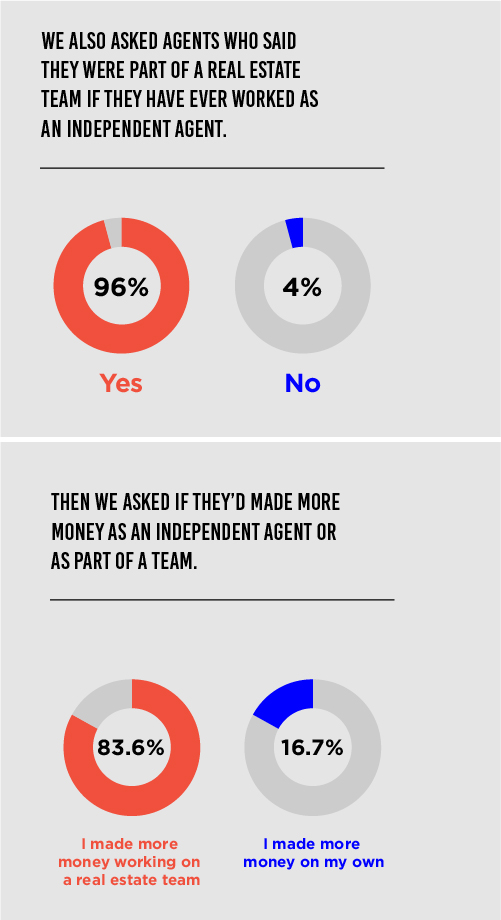Deciding roles
To help agents focus on what they do best, a first hire for many real estate teams is some sort of administrative role or support staff. Support staff can handle day-to-day tasks that would distract agents from what they need to focus on: selling.
Even the smallest teams may have an assistant who performs tasks such as answering phones and maintaining records. The team may have other full-time or part-time administrative staff – such as an office manager or virtual assistant – to handle other aspects of the business, such as designing advertising materials or maintaining the website.
Individual team members may have areas in which they specialize, or they may bring in a clientele that specifically seeks them out. Sometimes, areas of strength will be apparent and complementary, allowing a natural division of labor. One agent may excel at working with international clients, while another is particularly well-suited to handling new construction sales. Or, a particular agent may have a knack for working with a particular demographic – younger clients may be drawn to younger agents, for example. Real estate leaders must be able to recognize each team member’s strengths and weaknesses, and delegate work appropriately.
Finding the right people for the job
Straub explains that on his team, everyone is a “go-getter.” “They all want to close the deal. They put the client first and foremost. They dress well. They mean well. I look for good-hearted people.”
The team leader can give agents all the tools they need to be successful, but the agents must have the desire to succeed in order to make the most of them.
“You make sure they sound professional and have a desire to learn,” Passaro says. “It boils down to desire and commitment. How much time are they willing to commit to this industry?”
On Passaro’s team, differences in market knowledge and social circles help the team cover more ground. “The team members work different aspects of the market with little to no crossover,” Passaro says. “I also believe that the differences in age play a role. Their circles are different.”
Perhaps that is why Passaro has never needed to step in to resolve any conflicts between his team members, and cannot recall any point at which a dispute arose.
Straub says that because his team is small like a family, they know each other very well; as the team’s leader, he sees it as his responsibility to set expectations upfront, and prevent conflicts from the start. “I know and understand my team members’ lives and their personalities,” he says, “and therefore, I am able to resolve problems well among our family here.”

